There
are many sectors of the media industry which make up its structure, including
television, film, radio, animation, video games, music, and advertising. Many
of these sectors are interlinked and work together to provide the population
with entertainment and information. For example, the advertising sector works
primarily with TV, print, and radio, and sometimes within film in order to
further promote the products the advert is presenting to a wider audience.
Television
is one of the largest and most important sectors in the media. Its primary
function is to present high quality programming to be broadcasted to the
masses, via channels such as the BBC, ITV, Channel 4 and Channel 5. These
channels are the main broadcasters, with BBC being the biggest broadcaster
across the globe. The BBC is funded by a TV license, and therefore is not
controlled by the government. Most other broadcasters are private companies who
are funded by advertisements. There are thousands more smaller broadcasting
channels, however these five dominate the media in the UK.



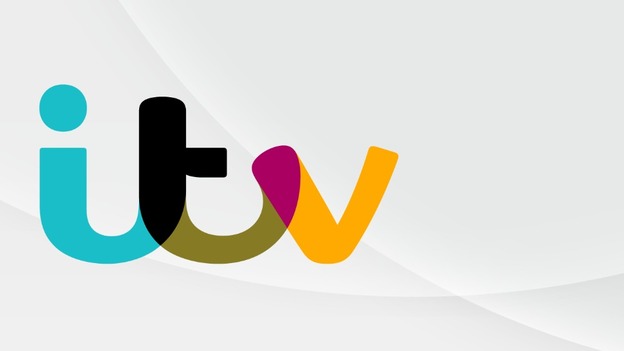
Film
is another of the largest media industries. Most film companies are privately
funded, by companies such as Time Warner, Disney, and Universal, and these large companies
often have a number of subsidiaries, e.g. Time Warner owns Warner Bros. The
structure of the film industry can be fairly complicated as there are so many
departments, however the main divisions include production, distribution, and
exhibition. Each sector employs thousands of people every year, and are very
important in the success of a film.

Radio
is one of the first forms of mass media, with BBC Radio 1 being established in
1967. The BBC is the largest radio company, with several different radio
stations named Radio 1, 2, 3 and so on. As well as the large commercial radio
stations that dominate the sector, there are also many small, not-for-profit
community stations focusing on local events and run primarily by volunteers. In
order to broadcast legally, radio organisations must be licensed under the
regulations of Ofcom.

Overall,
there are many sectors to the media industry, which in turn split into many
more sectors. Ownership within the media can become quite confusing, with many
companies being owned by large conglomerates, and countries working together to
fund projects. As technology advances, the industry has been allowed to expand
into the sprawling enterprise it is today.
Private Ownership
Rupert
Murdoch is a powerful example of someone who privately owns a lot of companies.
He controls the print company News Corporation, which publishes various books,
films, newspapers, and magazines.


Private
ownership has many positives and negatives. The positives include the fact that
it can potentially result in higher quality products, as the competition from
other private companies puts pressure on the company to hold onto their
audience. The main purpose of a private company is to generate profit via its
products, therefore beating out the competition is very important. On the
downside, this often means that private ownership leads to media companies
being more focused on this rather than creating new, interesting products,
leading to low quality, generic products that still appeal to audiences as
little changes.
For
example, within the gaming industry Activision’s popular video game series Call
Of Duty. Each year, the company releases a new sequel for the series which has
little development on the previous game, though long-time fans of the series
still buy the new product. Therefore, the company continues to make money.
However this eventually leads to a decline in public interest as the quality of
the product deteriorates.
Public Service Media
With the development of the world wide
web, public service media has become a much broader phrase. In the twentieth
century, it mainly referred to the major, regulated sources of information who
educated, informed, and entertained the public under the regulations of their
license. This primarily refers to the BBC. However, due to the internet the
population now has much more freedom, as the web offers many opportunities to
provide interactive media, from vlogs to blogs to comments on news websites
like BBC and Huffington Post. Content on the internet can be commercial or
non-commercial, and is commonly used by charities, activists, academics and the
government. This
has made it easier for ordinary people to get their voice heard, to inform the
population.

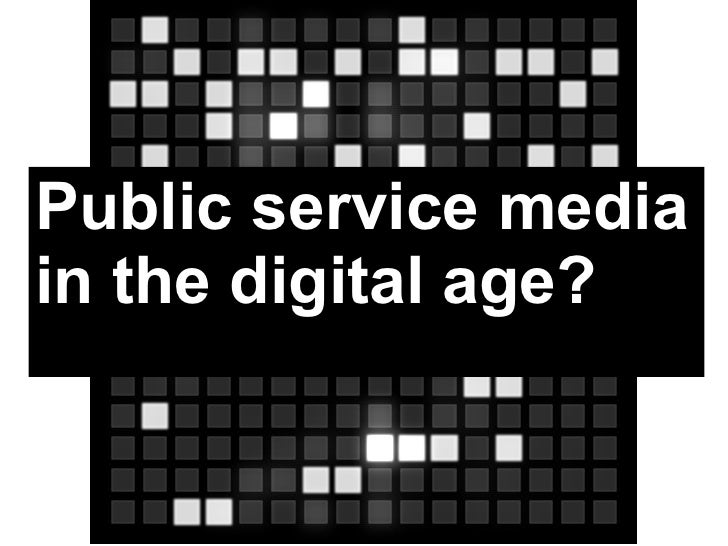
https://www.opendemocracy.net/ourkingdom/westminster-university-debates-public-service-media-in-digital-age
Ofcom
defines public service broadcasting as TV programmes that are broadcast for the
public benefit, such as local news coverage and arts programmes. Ofcom
regulates certain TV and radio broadcasters to ensure that they include a
specific amount of public service broadcasts.
The
five public service TV broadcasters in the UK include the BBC, Channel 4, S4C,
ITV, and Channel 5.


https://www.opendemocracy.net/ourkingdom/westminster-university-debates-public-service-media-in-digital-age
Multinational Media Companies
A
multinational company is a corporation that has subsidiaries or investments in
more than two countries; for example, BBC or Disney. Many multinational media
companies expand into other countries to further spread their influence, for
example the BBC reaches America, Europe, Asia, and the Middle East.
Advantages
of multinational companies includes the creation of jobs in international
countries, and an improved economy. Also, this form of ownership helps companies to gain more power across the world, rather than being confined to their own countries. It benefits the consumers in the form that they can also access media content from other countries easily, for example BBC America would show UK shows like Doctor Who and Sherlock. However, multinationals also have some
disadvantages. For example, some companies are accused of cutting corners by
exploiting the workforce of other countries. Additionally, the consumer may find themselves limited in forms of choice and diversity due to the fact that most companies are owned by large conglomerates with influence all over the world.


http://www.bbc.co.uk/bitesize/higher/business_management/business_enterprise/business_contemporary_society/revision/13/
Independents
Independent
media companies are companies that are completely independent from the
influence of the government and other companies. It also refers to the media
companies that distinguish themselves from the mainstream media.
Independent
companies often find it more difficult to find an audience, due to the
competition presented by other businesses or governments, and their lack of
funds. However, with the development of web 2.0, it has become easier for smaller companies to have their voice heard.
Most
sectors of media have independent companies, such as film, music, and
journalism.


Conglomerates
A
conglomerate is a corporation that is made up of multiple businesses. Each
subsidiary belonging to the conglomerate runs independently, however their
management reports to senior management of the parent company. A conglomerate
company is able to save more money by using few resources if they control
multiple businesses. Additionally, the company has much more stability, as the
risks that exist when operating in a single market are not applicable to the
situation. For example, Virgin is a very large conglomerate that has expanded
into multiple areas of industry, from music distribution, to a phone company,
to an airline.

Voluntary
Voluntary
work is non-profit work for a company or charity. The individual freely offers
to take part in the task. Examples include charities like Macmillian
Cancer Support. Volunteers who take part in work for charities do not get paid,
and instead any money raised goes to whatever the charity is for. For example,
the charity Cancer Research UK raises money to help find a cure. Volunteers can
also work freely for companies as an intern or for work experience. This is a
good way to gain some industry knowledge and contacts that can progress an
individual’s career in the industry.


Cross-Media Ownership
As technology has increased and improved, more ways to produce media have been created. Cross-media ownership is when a company diversifies into more than one area of media. For example, one company (such as Disney) can have products in film, TV, print, video games, and more.
As technology has increased and improved, more ways to produce media have been created. Cross-media ownership is when a company diversifies into more than one area of media. For example, one company (such as Disney) can have products in film, TV, print, video games, and more.
The advantages of cross-media ownership is the reduced costs of producing products (allowing them to reduce prices for the consumer or increase their profits) and synergy, which allows them to produce a much better product at a lower costs. Additionally, cross-media ownership allows for wider distribution (leading to a bigger audience and bigger profit) and business security, as if one market fails, the company can focus on another. A recent example is Google's failed investments in Google Glass. Though Google is now going to halt sales on the product, the company has many more profitable products (such as their web browser or their driverless cars) to rely on.

Disadvantages of cross-media ownership include the persuasiveness of the media. Power lies in the hands of only a few producers, and therefore they get what they want, while other views and opinions may not be so well represented. Cross-media ownership has led to the campaign for press freedom, which is a campaign against allowing so much power into one person's hands (such as Rupert Murdoch). Other disadvantages include a lack of privacy (as companies would have very large databases with lots of personal information), and the flow of information. News Corporation is a good example of this, as they own many newspapers. Therefore, all the newspapers owned by them would present similar views and opinions, leaving less face for alternate views.
http://www.slideshare.net/shubhamnag3/cross-media-ownership
Diversification
Diversification
is a company’s spread into other products that are unrelated to their original
product. Virgin is a good example of this, as they started as a music
distributor, which led to a record label, a mobile phone provider, a book
publisher, cosmetics, soft drinks, an airline, and more. Most conglomerates
(like Virgin) are very diverse, with lots of subsidiaries dealing with other
forms of media and even completely different industries.


Vertical Integration
Vertical
integration is when a company has shares or owns every part of the production
and distribution process. And example of a company like this is Warner Bros
Entertainment, as they own both film studios and also companies and cinemas to
distribute the films. This helps the company to compete against powerful media
institutions like the BBC. To put it simply, vertical integration is when two
companies within the same industry come together either by merging together or
being owned by one conglomerate. By expanding, the company is able to save more
money and have more control over the
production and distribution of the product.
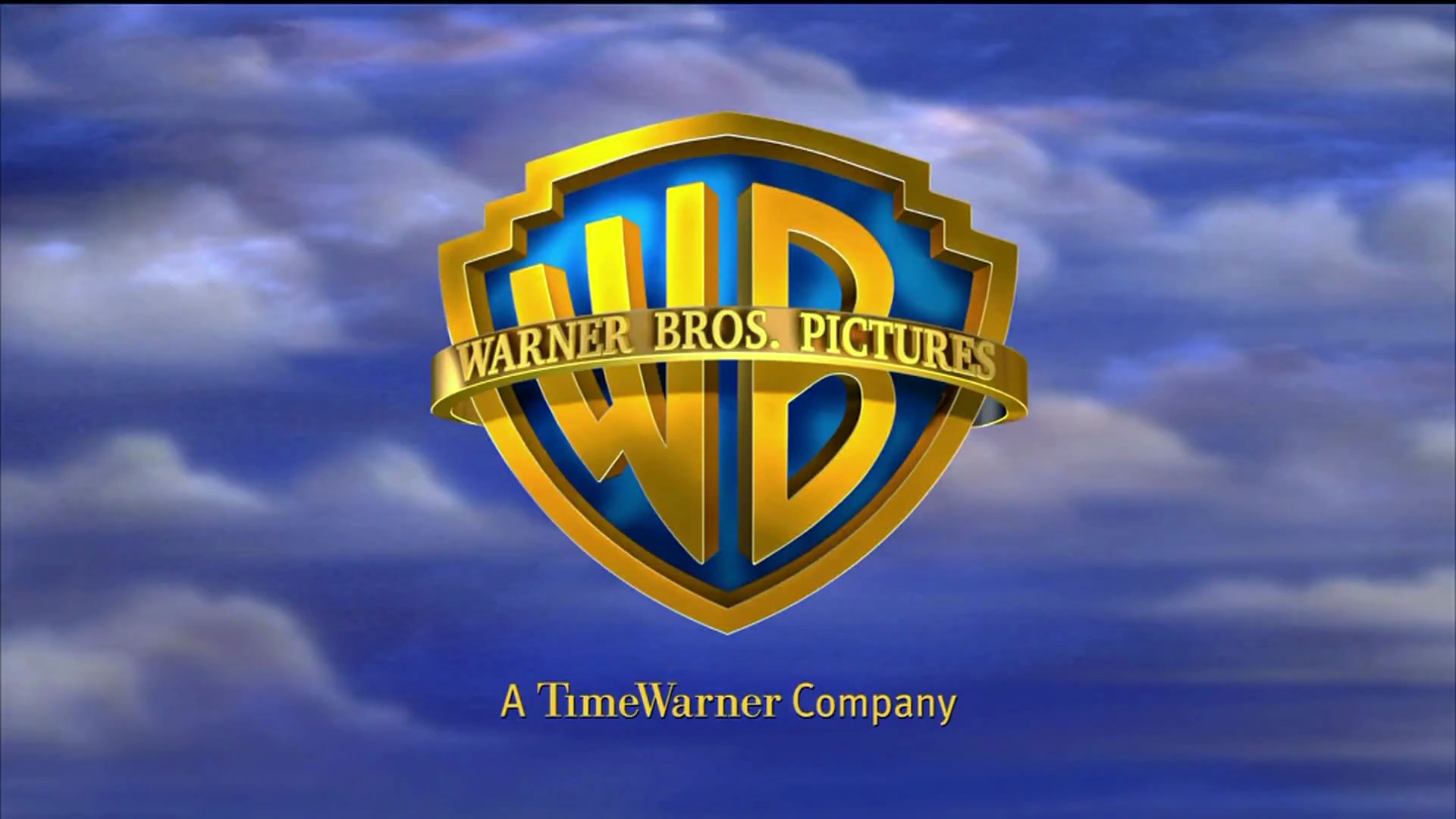
http://smallbusiness.chron.com/difference-between-vertically-integrated-company-horizontally-integrated-production-company-32196.html
Horizontal Integration
Horizontal
integration is when a company buys companies in the same section of the
industry. For example, Rupert Murdoch, CEO of News Corporation, owns many
newspapers all over the world. This means that News Corporation has a large
amount of control over journalism media. Horizontal integration allows
companies to expand in a much cheaper way than starting a business from
scratch.

http://smallbusiness.chron.com/difference-between-vertically-integrated-company-horizontally-integrated-production-company-32196.html
Share of Ownership
Share of ownership is when multiple companies (shareholders) have a share in the profits of one company. Shareholders pay for their share, and in return get a percentage of the profits the company makes.
Share of ownership is when multiple companies (shareholders) have a share in the profits of one company. Shareholders pay for their share, and in return get a percentage of the profits the company makes.
http://www.thefreedictionary.com/shareholding
Mergers and Takeovers
A
takeover in media is when one
company takes a controlling interest
in another company, leading
to a change of ownership. For
example, the streaming site
Twitch
was recently bought by Amazon for $970m.
A
merger is a combination of two previously separate media companies into one new
company. For example, NBC Universal which is a merger of NBC and Vivendi
Universal Entertainment.


Cross-Media Regulation
Cross
media ownership has to be regulated in order to prevent media monopoly in the
UK. The aim of these rules is to protect plurality of viewpoints, and to allows
the public multiple sources for information and opinions. Ofcom are in charge
of reviewing these rules, and suggesting changes where needed. The rules cover
some restrictions on how much one company can own – for example, if a newspaper
owner (such as Rupert Murdoch) owns more than 20% of the total circulation,
they cannot own more than 20% of one company.

Sources of Income
There are many revenue models in the media industry. Income can be obtained from various sources, including merchandise, distribution of the product (E.G. distributing a film in cinemas, or having people pay a TV licence for TV channels), advertising, events, partnerships, community memberships, content subscriptions, and more. Different forms of media offer different ways for generating revenue. For example, in the video game industry, companies can make money through game sales, pre-orders, Kickstarter campaigns (mostly with indie developers), micro-transactions (common in free-to-play and mobile games), and monthly/yearly subscriptions (such as World of Warcraft or Elder Scrolls Online). Or, in the newspaper/magazine industry, companies can make money from sales, monthly subscriptions, advertising and online advertising.


http://www.cmswire.com/cms/web-publishing/how-media-companies-can-generate-revenue-006988.php
Product Diversity
Product
diversity in the media means to modify existing products or adding new products
to the range that are already available. This helps the company to grow and
appeal to bigger audiences. Having more diverse products on offer means that
more people will be interested in the company. Market research, product
adaptation, and legal review is very important for this to be successful, as
media companies must have a detailed knowledge of exactly what their audience
wants from them.
Profitability of Product Range
Profitability of product range is an estimate of how much profit the company can make from the products it sells. This allows the company to analyse statistics and see which products are selling well and which products are not worth continuing to produce. The products with the most popularity will be focused on, while the less popular products will be discontinued so that the company does not experience a loss in profits. In television, TV producers will discontinue shows that a failing to make a large enough profit, in order to focus on the more popular shows. For example, BBC's In The Flesh was recently cancelled due to the company's budget cuts ("Given there is only budget for one original drama series a year on the channel it won't be returning" - BBC Three Twitter feed).
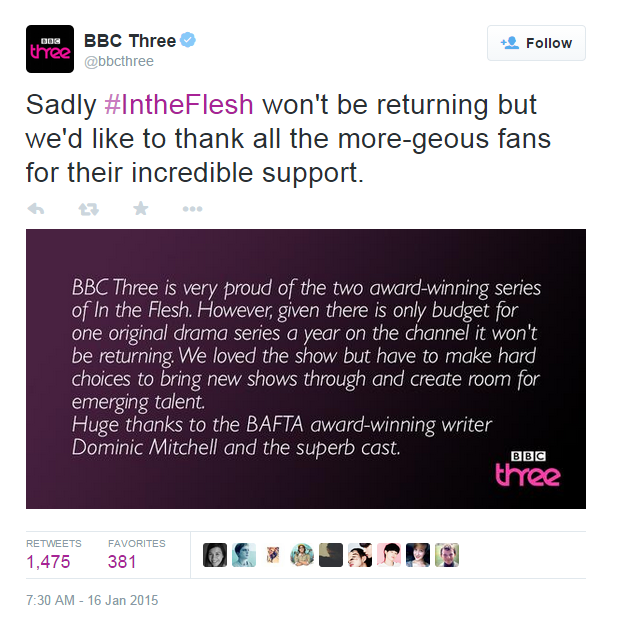
http://dictionary.cambridge.org/dictionary/business-english/product-profitability
http://www.bbc.co.uk/newsbeat/30854846
Performance against Financial Concerns
Performance against financial concerns is a measure of how well a company is using its assets to generate revenues, and a measure of a company's financial health. These statistics can be used to compare companies with each other, to help identify areas of competition. The results are found by analysing the company's generated revenue from its assets, investments, and profits.
http://www.investopedia.com/terms/f/financialperformance.asp
http://www.businessdictionary.com/definition/financial-performance.html
http://www.businessdictionary.com/definition/financial-performance.html
Organisational Objectives
Organisational objectives are the goals of the company, both short-term and medium-term. The goals of the company heavily influences the products they release, and the branding of the company. By setting and achieving goals, it is easier for the company to gain success and power, and maintain their position against their competitors.
http://education-portal.com/academy/lesson/organizational-objectives-definition-examples-quiz.html#lesson
Licences and Franchises
A licence is a permit to own or use something. Some example of licences include a TV licence, which all households require in order to legally watch TV. The BBC is paid for by the revenue received from TV licences. Another form of licence is the PPL/PRS licence, which allows you to play recorded music/music videos in a public place. All cafés, pubs, restaurants, shops, schools, etc. must have a licence to play music. The revenue generated by this type of licence goes to the record company/musician that owns the music.

A franchise is a form of licence that allows a company access to another business's intellectual property. This allows the company to sell products under the original business's name. The franchisee pays the franchisor start-up and annual licensing fees to pay for the franchise. Many popular media products have become franchises, for example many Disney films have become franchises with their own lines of merchandise and in many cases spin-off TV shows and films.
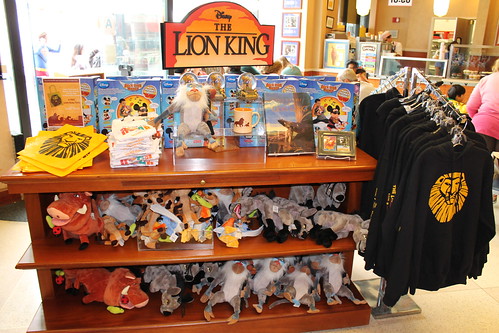
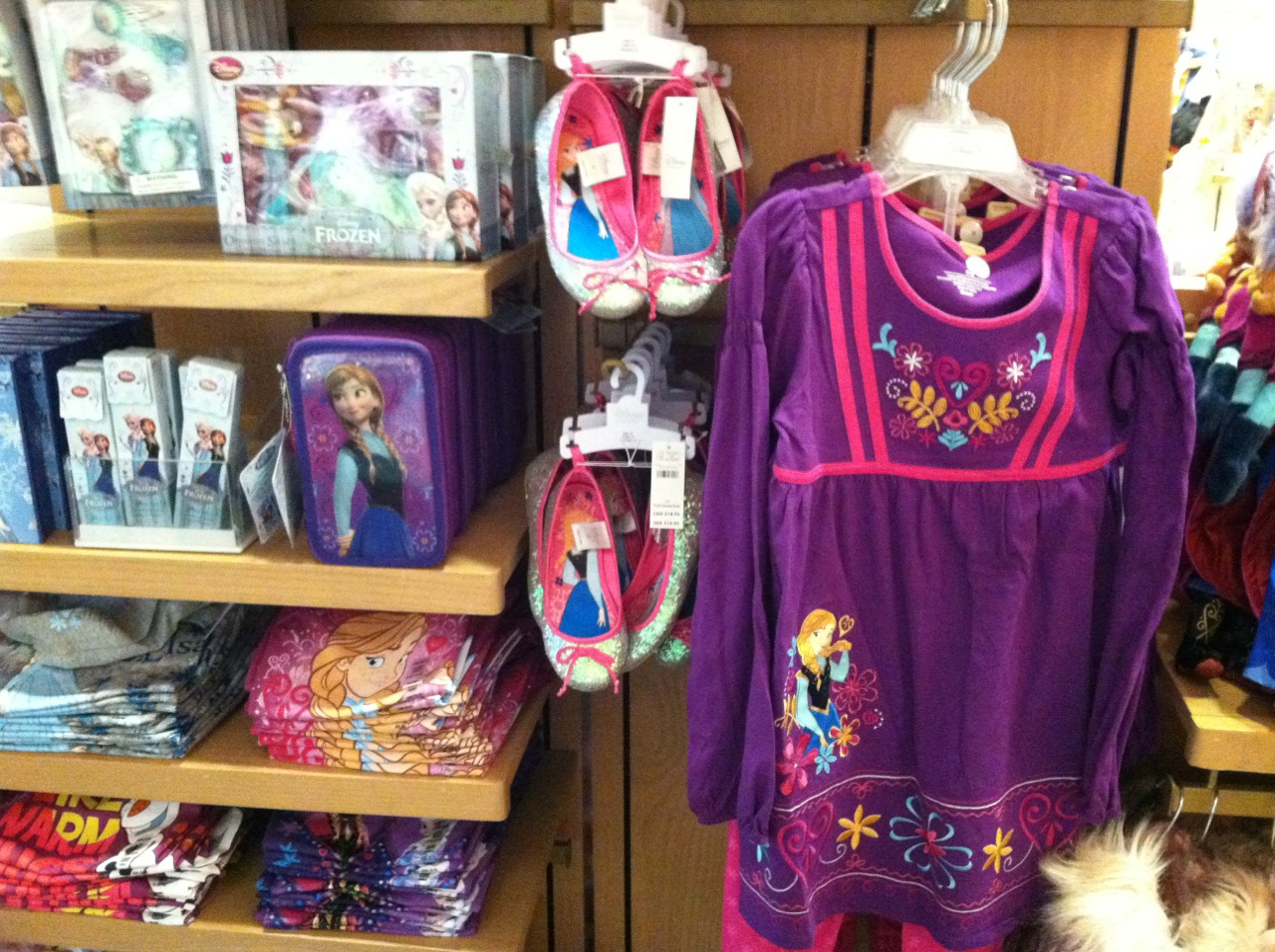
http://www.oxforddictionaries.com/definition/english/licence
http://www.tvlicensing.co.uk/check-if-you-need-one
http://www.ppluk.com/
http://www.investopedia.com/terms/f/franchise.asp

A franchise is a form of licence that allows a company access to another business's intellectual property. This allows the company to sell products under the original business's name. The franchisee pays the franchisor start-up and annual licensing fees to pay for the franchise. Many popular media products have become franchises, for example many Disney films have become franchises with their own lines of merchandise and in many cases spin-off TV shows and films.


http://www.oxforddictionaries.com/definition/english/licence
http://www.tvlicensing.co.uk/check-if-you-need-one
http://www.ppluk.com/
http://www.investopedia.com/terms/f/franchise.asp
Competitors
Competition
is huge in the media industry due to the number of media companies out there.
Media companies must beat their competitors, otherwise they will lose customers
and therefore lose out on profit. Every media company has various competitors,
for example in the video game industry developers Ubisoft are
a competitor of EA Games. These companies make similar types of games aimed at
the same target audience, and therefore they must work hard to produce higher
quality products in order to win the customers over. It is important for
companies to know exactly who their competitors are and what they are offering,
so that they can develop unique selling points to help them stand out. Most
companies have multiple competitors.


Customers
A
customer is someone who consumes the product being sold by a media company.
Customers are able to choose between different products and suppliers, which is
the source of the competition between companies. Without customers, companies
will not make a profit. Media
companies can gain feedback from
their customers in various ways, particularly
via social media and surveys.

National and Global Competition and Trends
National and global competition refers to competition between media companies but on a large scale. National refers to competition between companies in the same country, whereas global refers to competition between companies of different/various nationalities. For example, the rivarly between US-based company CBS and UK-based company BBC. Both companies release similar content, most importantly a TV channel with programmes.
National and global competition refers to competition between media companies but on a large scale. National refers to competition between companies in the same country, whereas global refers to competition between companies of different/various nationalities. For example, the rivarly between US-based company CBS and UK-based company BBC. Both companies release similar content, most importantly a TV channel with programmes.
Trends are current fashions or fads that are very popular in the mainstream media. They are often short-term lasting only a few months. They are often a popular topic for discussion on social media websites such as Twitter, which has a "top trends" feed on the site.


http://www.oxforddictionaries.com/definition/english/trend
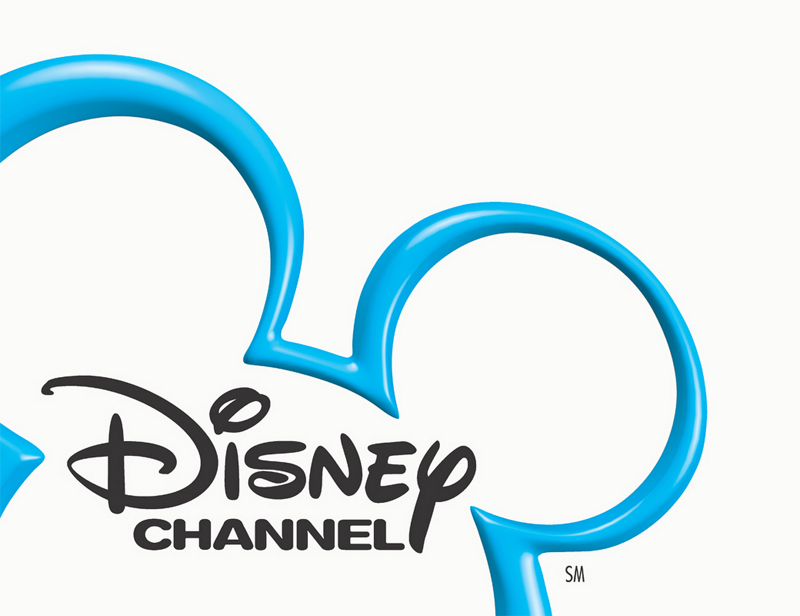

No comments:
Post a Comment